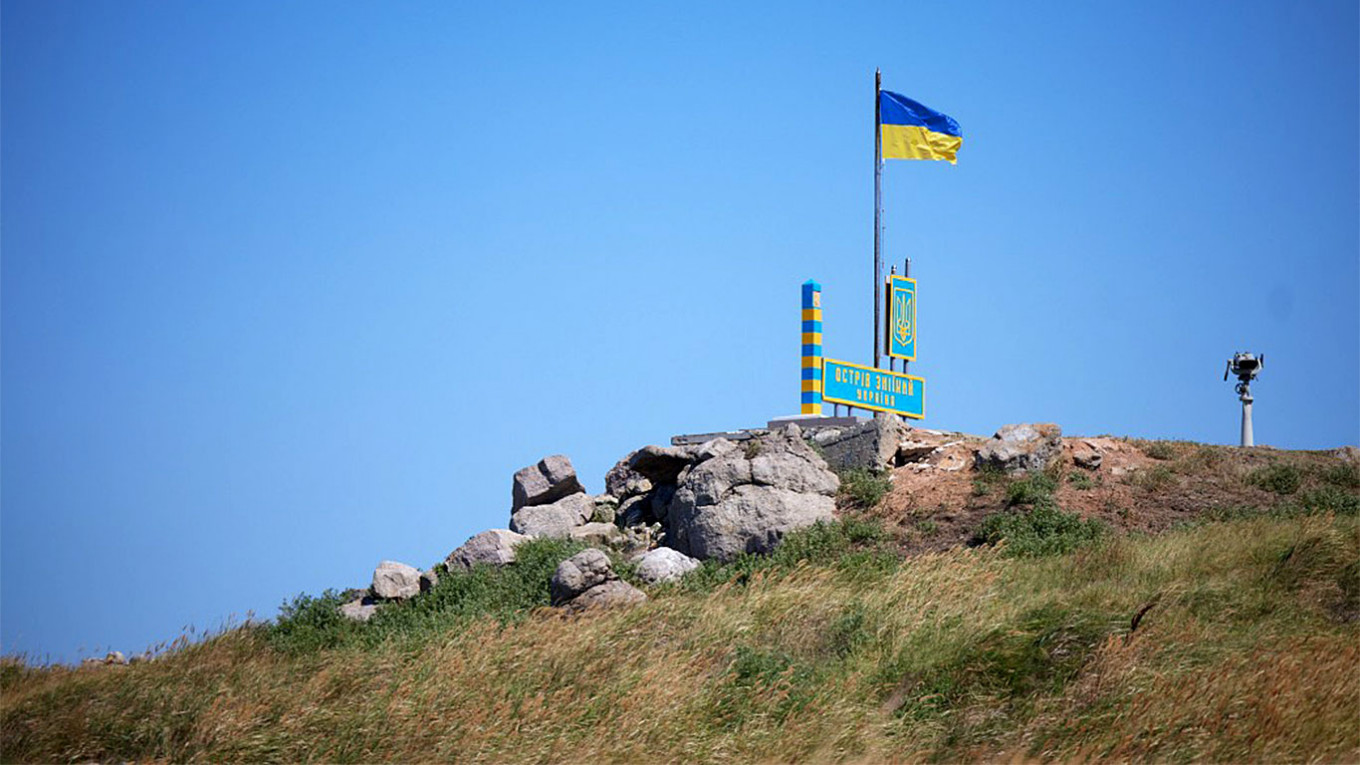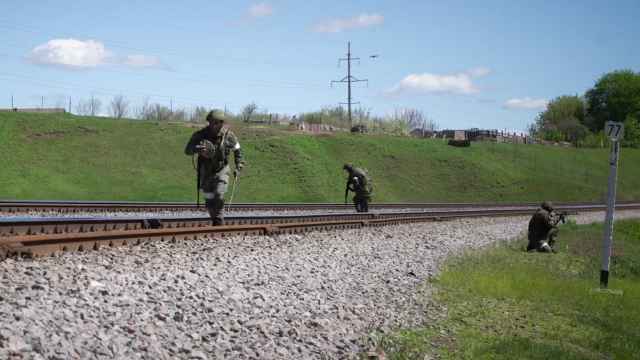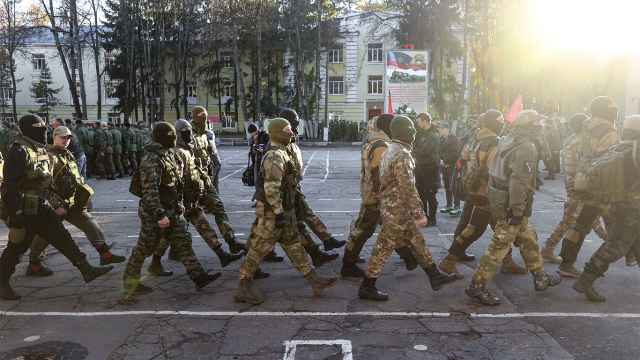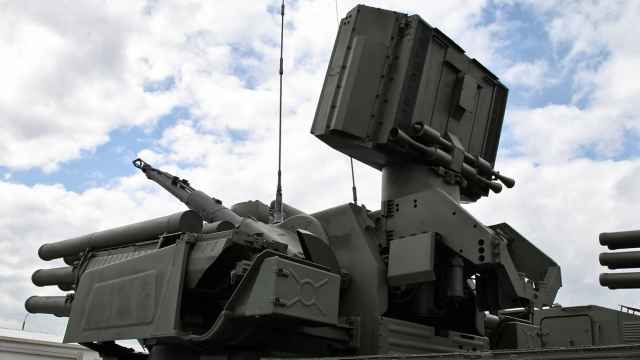Columns of heavy smoke were visible in the first images of Snake Island published by the Ukrainian military Thursday as Russia announced it had retreated from the strategic outpost near the Danube Delta.
Russia’s decision to withdraw was likely the result of repeated Ukrainian attacks, including those launched with Western-supplied weaponry.
"From a military point of view, the decision is unfortunately correct. From a political point of view — it is undoubtedly a defeat,” Igor Girkin, a former commander of separatist forces in eastern Ukraine, said on Twitter on Thursday.
The site of a widely publicized act of Ukrainian resistance when defending forces told Russian sailors to “go **** themselves” on the second day of the war, Russia captured Snake Island shortly after.
Just 48 kilometers from the Ukrainian coast, it went on to become a key battleground between Ukrainian and Russian forces.
"KABOOM! No Russian troops on Snake Island anymore. Our Armed Forces did a great job," Andriy Yermak, head of the Ukrainian president's office, wrote on Twitter on Thursday.
Ukrainian pressure on the island, which is less than 1 square kilometer in size, likely became overwhelming following Western deliveries of anti-ship Harpoon missiles and U.S.-manufactured HIMARS rocket launchers.
The new weaponry put Russian equipment and troops stationed on Snake Island within easy reach from the Ukrainian mainland, according to experts.
“This is likely a tangible result of NATO arms deliveries to Ukraine,” military analyst Rob Lee wrote on Twitter.
“Ukraine previously attacked Russian positions on the island, but the recent deliveries of HIMARS and Harpoons made it increasingly untenable or too costly for Russia to hold it.”
The Ukrainian Armed Forces said Thursday that Ukrainian 2S22 Bohdana 155 howitzers were also used to hit Russian targets on the island.
Seeking to downplay claims that Russia had been forced out by successful Ukrainian attacks, the Russian Defense Ministry claimed in a statement Thursday that the smoke rising over Snake Island was not the result of Ukrainian strikes, but of the destruction of equipment carried out by withdrawing Russian troops.
“[Snake Island] had fulfilled its role in terms of controlling airspace,” the Defense Ministry said on Telegram. “In light of the constant attacks by the Ukrainian Armed Forces, significant resources were being spent on its retention.”
Russia moved air-defense systems onto the island shortly after it was occupied, enabling them to tighten their control over the Black Sea, said Sam Cranny Evans, a military analyst at the London-based Royal United Services Institute think tank.
The Russian garrison on Snake Island also gave the Russian military the capacity to support an assault on the key Ukrainian port city of Odesa, just 140 kilometers away.
“The strategic rationale that Snake Island had in the beginning was retaining wider control of the Black Sea and enabling a choice as to whether to conduct an amphibious assault against Odesa,” said naval expert Alessio Patalano at King's College London.
But the chances of an attack on Odesa, which appeared high in the early days of the war, shrank as the Russian offensive in southern Ukraine stalled.
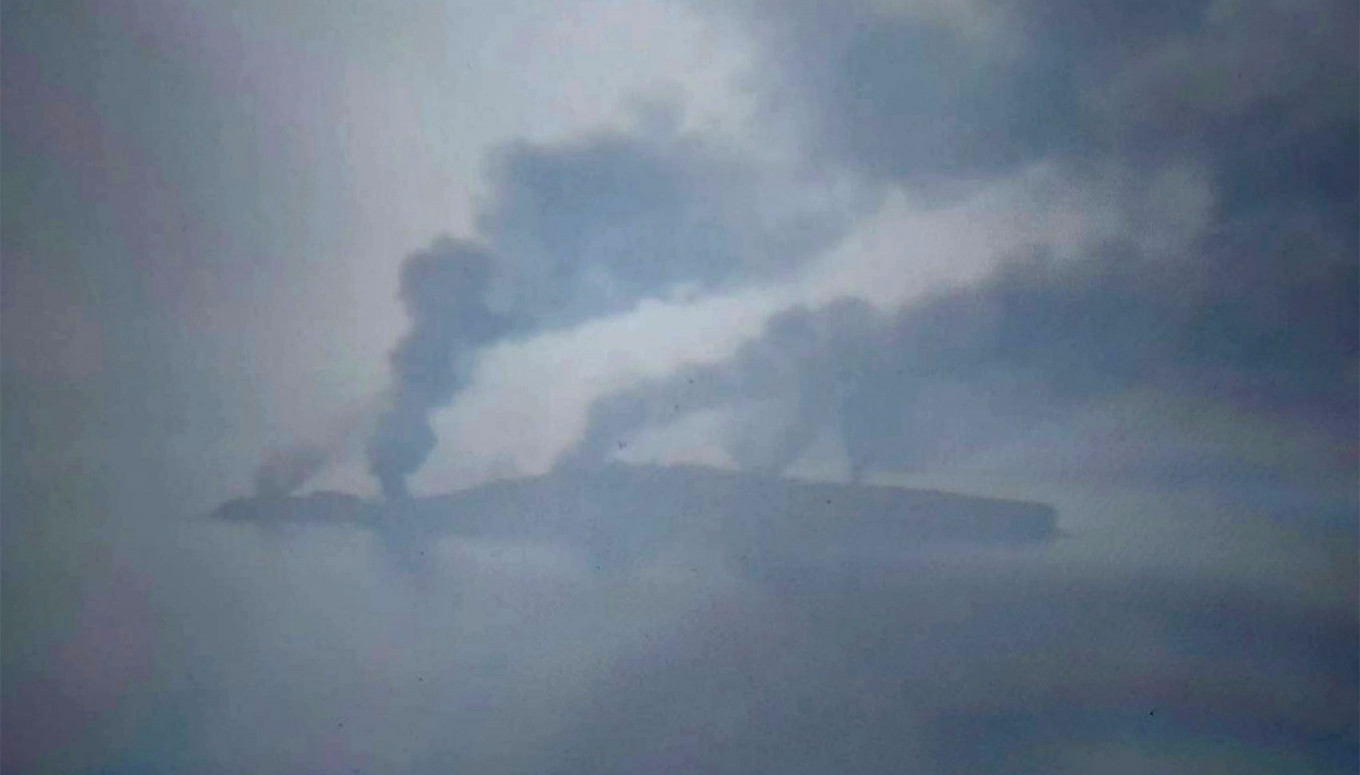
Russia has also been accused of using its naval forces in the Black Sea and military systems stationed on Snake Island to enforce an economic blockade of Ukraine.
The Russian presence means cargo ships have been unable to reach Ukrainian ports.
“Russia's naval blockade has had a devastating effect on the Ukrainian economy,” said Maria Shagina, an expert at the International Institute for Strategic Studies.
“The blockade hindered the exports of grains and steel, one of the key revenue-generating items for the Ukrainian budget.”
Russian officials attempted to portray Thursday’s retreat as a voluntary move toward opening up Ukrainian ports for the export of grain and other agricultural products.
"As a step of goodwill, the Russian Armed Forces fulfilled their tasks on Snake Island and withdrew," Defense Ministry spokesman Igor Konashenkov said.
"In this way, we are demonstrating to the global community that the Russian Federation is not hindering the efforts of the UN to organize a humanitarian corridor for the export of agricultural products from the territory of Ukraine," he said at a briefing.
But there appear to be few chances of such an agreement, with Taras Kachka, Ukraine’s deputy economy minister and lead trade negotiator, saying that a deal on exports was “more optimistic than reality,” the Financial Times reported.
And Russia’s losses in the Black Sea have been mounting in recent weeks.
Russian tugboat Vassily Bekh was hit with anti-ship missiles and sunk while attempting to deliver supplies to Snake Island on June 17, according to the Ukrainian Armed Forces.
And three gas production platforms about 70 kilometers west of Snake Island were struck by Ukrainian missiles last week, causing a large fire.
At least 10 Russian vessels have been destroyed in the Black Sea since the beginning of the war, including the Russian Black Sea Fleet’s flagship the Moskva, according to Oryx, an intelligence blog that tracks Russia's military losses using open-source analysis.
“You can see why it's reasonable to relinquish control of the area,” said expert Patalano about the Russian retreat from Snake Island.
“It was always going to be very costly for the Russians to maintain a degree of control in the western Black Sea.”
A Message from The Moscow Times:
Dear readers,
We are facing unprecedented challenges. Russia's Prosecutor General's Office has designated The Moscow Times as an "undesirable" organization, criminalizing our work and putting our staff at risk of prosecution. This follows our earlier unjust labeling as a "foreign agent."
These actions are direct attempts to silence independent journalism in Russia. The authorities claim our work "discredits the decisions of the Russian leadership." We see things differently: we strive to provide accurate, unbiased reporting on Russia.
We, the journalists of The Moscow Times, refuse to be silenced. But to continue our work, we need your help.
Your support, no matter how small, makes a world of difference. If you can, please support us monthly starting from just $2. It's quick to set up, and every contribution makes a significant impact.
By supporting The Moscow Times, you're defending open, independent journalism in the face of repression. Thank you for standing with us.
Remind me later.



